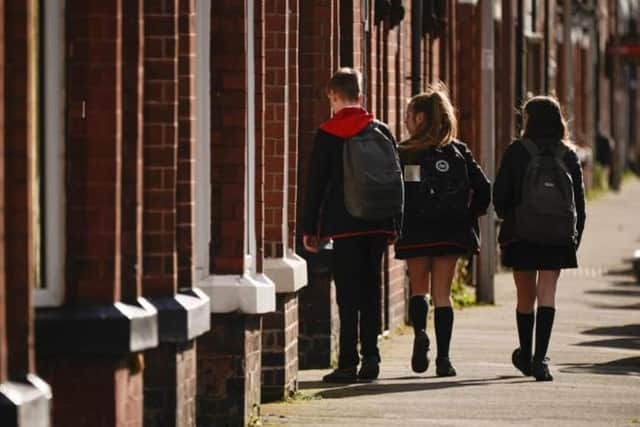Government warned too many children are 'falling out of school and into harm'
The Commission on Young Lives, run by former Children’s Commissioner Anne Longfield, stated the Government should ban primary school exclusions by 2026 and introduce incentives
for secondary schools to keep challenging children on their roll.
Advertisement
Hide AdAdvertisement
Hide AdIn a new report, the commission said Ofsted should focus on rewarding “inclusive” schools and refuse to give “good” or “outstanding” ratings to those which readily exclude pupils, to ensure exclusions become a “genuine last resort”.


It also said a new “pupil wellbeing” league table should be introduced, so schools are not only ranked on exam results.
Government research shows around one in five (22 per cent) of children who have been convicted of a serious violent offence have also been permanently excluded.
Earlier this year, 12 children’s charities, including the NSPCC and Barnardo’s, warned the Government that excluding children from school can often make
them more vulnerable to exploitation.
Advertisement
Hide AdAdvertisement
Hide AdMs Longfield said: “Look behind the headlines of the tragic deaths, acts of serious violence and criminal exploitation of our young people over recent years and so often you see a pattern of children disengaging and falling out of school and into harm.
“Not all children who leave mainstream school will be affected, but the statistics show that too many will.”
The number of permanent exclusions in England rose by 55 per cent between 2010 and 2018 – to 7,894. The latest figures show there were 5,057 in 2019/20, when schools were shut for several months due to the pandemic.
The commission spoke to parents whose children had become involved in violent crime after being excluded, but it also interviewed headteachers who said “a lack of resource and support leaves them with limited options to be more inclusive”.
Advertisement
Hide AdAdvertisement
Hide AdResearch suggests just 10 per cent of schools are responsible for 88 per cent of exclusions, while others are known to encourage difficult children to join another school or into home schooling.
Some also engage in off-rolling, where pupils are transferred to another school because they have behaved badly or received poor exam results.
In the report, Ms Longfield wrote: “They can receive a good Ofsted rating while putting little emphasis on improving outcomes for those children who are really struggling for a range of reasons. Or worse, in a minority of schools, they do not feel it is in their interests to even have vulnerable children in their school.
“We need to ask how the system has ended up providing plenty of incentives for schools to use exclusions and other off-rolling methods to game league tables and Ofsted inspections."
Advertisement
Hide AdAdvertisement
Hide AdShe added: "We cannot afford to remain an education system hooked on the measurement of school and individual success by exam grades alone.”
A Department for Education spokeswoman said: "While permanent exclusion for young children is rare, suspension and exclusion are necessary and essential behaviour management tools.
“We are working to understand and tackle avoidable absence through the attendance alliance, and the Alternative Provision and SAFE taskforces are providing direct, targeted support to vulnerable pupils at risk of crime or exploitation, to keep them engaged in education.
“Longer term, our recently published SEND and Alternative Provision Green Paper set out our plans to reform alternative provision, changing the culture and practice of how settings run and best support their pupils.”
